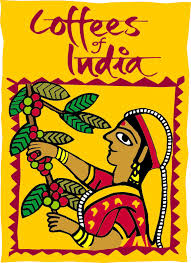MILAN – Coffee production in India for 2013/14 is likely to be at least 10% lower than post-blossom estimates, the Chairman of the Coffee Board on India Jawaid Akhtar said Monday.
“Based on the conditions that prevailed in February and March, when the growing regions received good blossom showers, we had estimated we would achieve 347,000 tonnes. However, due to a drought in the two subsequent months and the heavy rains in June, July and August, we anticipate a drop of about 10%, against the post-blossom estimates,” he said.
“To assess the crop prospects post the monsoon, we will conduct an extensive field survey in the growing areas in Karnataka in October, and that would give us the correct picture,” he added.
Akhtar was speaking at a presentation on the outlook for coffee this financial year on the eve of the 120th annual conference of India United Planters’ Association of Southern India (UPASI)
UPASI is the apex body of four major plantation crops like coffee, rubber, spices and tea in South India.
The post Blossom crop forecast for the year 2013-14 is placed at 347,000 tonnes, up 28,800 tonnes (+9.05%) over the final estimate of previous year 2012-13 of 318,200 tonnes.
Good blossom showers were followed by delayed backing showers and drought. Monsoon rains started on time.
Major coffee growing regions in the districts of Chikmagalur, Kodagu and Hassan have witnessed more than 70 days of heavy rains accompanied by gusty winds during the first three months of monsoon, which resulted in black rot and stalk rot disease.
“Continuous heavy rainfall is reported to have caused fruit drop and incidence of black rot and stalk rot in certain high-rainfall areas, which may affect the final crop,” according to Akhtar.
Government wants to brand Indian Arabica coffees
The Ministry of Commerce and Industry is considering creating an Indian mild Arabica coffee brand for the promotion of arabica coffee in international markets.
This aim would be achieved through a brand initiative under the public-private partnership (PPP) model, said a senior ministry official.
“We don’t want Arabica coffee to die out because of the impact it has on the environment of the Western Ghats. The Indian mild arabica coffee is very highly priced.
The only way to get better prices for our coffee is to brand it, package it and promote it in foreign markets,” said J S Deepak, additional secretary in the commerce ministry.
Addressing the 120th annual conference of the UPASI on Tuesday, he said, “The ministry is willing to commit resources and expertise required for promoting an Indian mild Arabica brand.”


















